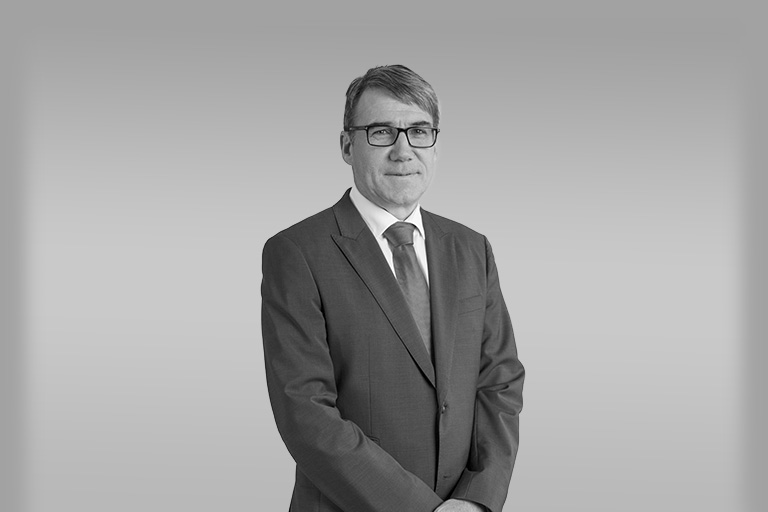Between countries and within a country over time, there is a strong correlation between the proportion of respondents answering on a standard survey that “people can generally be trusted” and the wealth of that country. Academics have tried to answer how this relationship is causal in each direction: Does being more trusting make you better off, or does being better off make you more trusting? By showing a relationship between past trust in different communities and changes in wealth, a 2010 study, titled Inherited Trust and Growth by Yann Algan and Pierre Cahuc, showed that improvements in trust do seem to make a big difference to future progress.
This makes intuitive sense: All economic activity relies on trust. We trust that the money we are paid each month will be accepted by shops, that banks will pay out our deposits, that drivers will accept our Uber payments, and that the person signing a deed of sale will really pay up when a house is transferred. The more trust there is, the less effort we have to spend checking up on people, the more efficiently we can work together, and the more progress we make.
In the week that I am writing this, the World Bank has revised its growth forecast for South Africa for 2018 and the South African Reserve Bank has said that GDP growth could exceed its forecast. The forecast rates of growth are not nearly what we need, but at least the trend is upwards. Our economy’s increased optimism and confidence are being driven by increased trust between society, government and business, resulting from the big political changes that happened in February and March. In the same SA economic update, the World Bank pointed to its March report on poverty and inequality in South Africa: We remain the most unequal country in its database. Inequality is very strongly correlated with low trust, and in this case, the relationship is clearly causal. Inequality of opportunity undermines trust and low trust undermines economic activity.
Maybe this is an obvious point to make, but we have to use this breathing space to build a more equal and trusting society or, in no time at all, we will turn back to acrimonious finger-pointing and economic stagnation.
Ownership responsibilities
We are keenly aware that part of our role is to act as a bridge of trust between you and the companies in which we invest your savings. In her piece this quarter, Raine Adams delves into responsible investing and how it influences our thinking. Some may consider environmental, social and governance (ESG) factors as separate from the investment process, but for us they are integral. While it is the responsibility of the analyst assigned to a particular company to assess and analyse ESG issues, we also have an environmental and social analyst, as well as a governance analyst who are both available to assist the primary analyst in the research process and in flagging and analysing any ESG risks that may arise. We report on ESG matters in our annual Stewardship Report, which is available via our website.
Linked to this theme, Leonard Krüger shares the intricacies of our investment process and philosophy, while Nadia van der Merwe provides useful insights in this quarter’s Investing Tutorial on the inner workings of a company, including the roles, responsibilities and remuneration of executives.
This will be my last Quarterly Commentary, and I would like to take the opportunity to wish you well and to thank you sincerely for your support
Offshore investing
People are more inclined to trust those close to them so it is very helpful that we share a founder, as well as our approach to investing, with our offshore partner, Orbis. A focus on intrinsic value and independent research has helped Orbis to outperform its benchmark and its peers in a period in which the average global equity manager has substantially underperformed the MSCI World Index.
While our investment philosophy is firmly rooted in core values, we opt for resilience and agility over rigidity in applying the philosophy. Matt Adams explains why this is so important in a world where the traditional rules of the game appear to break down. He believes that compelling investment opportunities remain for those who think differently and aren’t afraid to look in less obvious places.
We were pleased with National Treasury’s move to up the offshore exposure limits in the February 2018 Budget. Taking advantage of current rand strength to diversify away from our concentrated local share market, our investment team has raised the offshore exposure of our Balanced and Stable funds to 29.6% and 28.5% respectively (in addition to their investments in African bonds and equities). The Allan Gray Equity Fund’s offshore holdings have been increased to 28.8%.
Risky business
A conversation about investing invariably becomes a conversation about risk. Risk is complex – it needs to be considered holistically from the point of view of yourself and your generational and cultural influences, your time horizon and the characteristics of your chosen investment. In his piece, Rob Formby helps us understand how our risk profiles are shaped and gives us some pointers on how to understand our tolerance levels and make more considered investment decisions.
A new broom
This will be my last Quarterly Commentary, and I would like to take the opportunity to wish you well and to thank you sincerely for your support for Allan Gray during my time as chief operating officer. This job has been a privilege and a joy for me, but it is time for someone else to have a turn. Rob Formby will take over in the next two months, having previously done a great job running a substantial part of our business.
Rob Formby and Andrew Lapping and their teams are extremely capable and passionate advocates of the Allan Gray values and I know they will look after your (and my) savings with due care. Thank you for trusting us with your investments.
